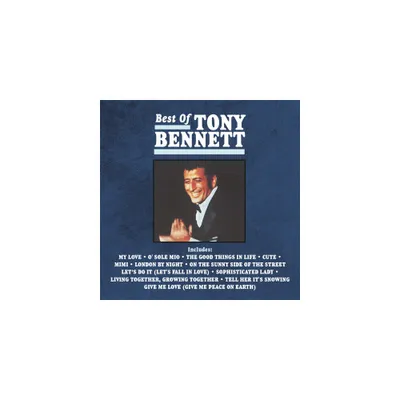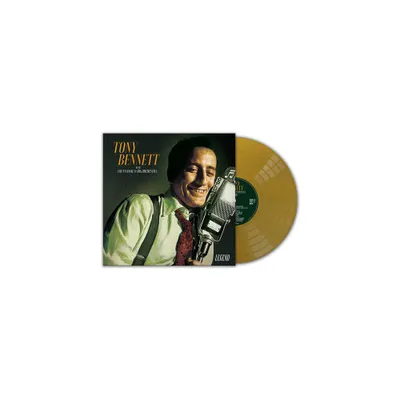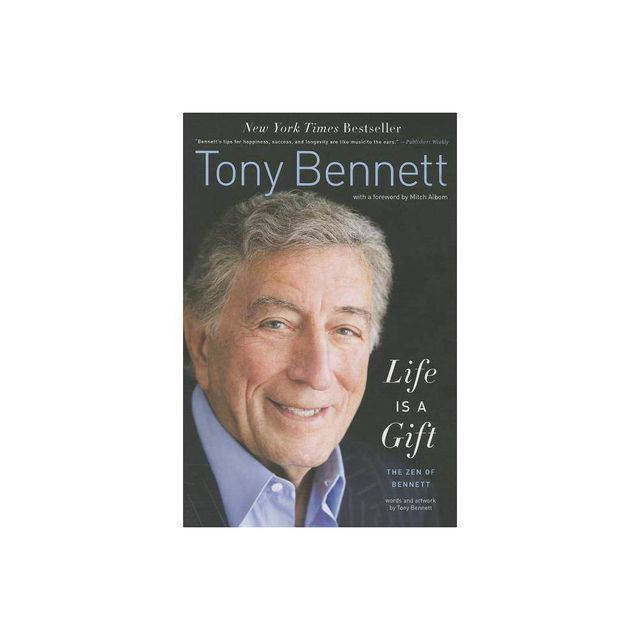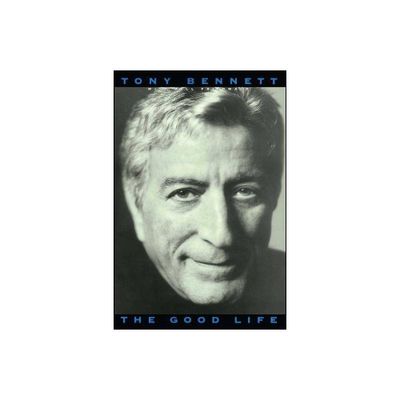Home
Fifty Years: The Artistry of Tony Bennett
Loading Inventory...
Barnes and Noble
Fifty Years: The Artistry of Tony Bennett
Current price: $49.99


Barnes and Noble
Fifty Years: The Artistry of Tony Bennett
Current price: $49.99
Loading Inventory...
Size: OS
*Product Information may vary - to confirm product availability, pricing, and additional information please contact Barnes and Noble
When the first version of this impressive box set was originally released in 1991 (as
Forty Years: The Artistry of Tony Bennett
), it put the capstone upon
Tony Bennett
's remarkable return to prominence by looking back at a legacy that had been overshadowed by that of the colossus
Sinatra
. The collection methodically traced his career from his first
Columbia
record,
"Boulevard of Broken Dreams,"
in 1950, through the hit singles and key or capriciously selected album tracks up until 1972. Then, after borrowing three tracks from
Fantasy
's 1975
/
Bill Evans
project (including an exquisite
"Some Other Time"
with a
"Peace Piece"
introduction from
Evans
), the box leapt ahead 11 years to contemplate
Bennett
's unlikely resurrection as an icon of the cynical young. From there,
Fifty Years
departs from its predecessor by adding a fifth disc which, at 23 tracks, boosts the total from 87 to 110 tracks.
's unlikely popular success during the '90s and 2000s is surveyed with a parade of Grammy winners, including selections from 1993's
Perfectly Frank
, 1994's
Steppin' Out
and
MTV Unplugged
, 1999's
Bennett Sings Ellington: Hot and Cool
, and 2002's
A Wonderful World
(among others).
's early records are almost operatic in feeling, a honey-smooth Italian tenor building toward histrionic climaxes, but the voice eventually busts loose into an outgoing, life-celebrating baritone, and, by the 1980s, reemerges as a darker, softer, even somewhat raspy replica of itself. There isn't much for the
jazz
listener here other than an occasional session with
Count Basie
(dig their ebullient
"Lullaby of Broadway"
together), a few cameos by
names, the
tracks, or some upbeat charts by
Ralph Sharon
,
Ralph Burns
, and a few others. Ultimately, the most striking difference between
's records and
's is the sheer, unbeatably high quality of arrangements that
was able to get. Yet despite the abundance of period MOR treacle, many of these records are more interesting than memory recalls; for example, it's difficult to resist such a naively joyous track as
Frank DeVol
's rendering of
"Put on a Happy Face"
that has the
Mitch Miller
era written all over it. There is no better
retrospective at any price, although
specialists might be better served by the
Jazz
compilation. ~ Richard S. Ginell
Forty Years: The Artistry of Tony Bennett
), it put the capstone upon
Tony Bennett
's remarkable return to prominence by looking back at a legacy that had been overshadowed by that of the colossus
Sinatra
. The collection methodically traced his career from his first
Columbia
record,
"Boulevard of Broken Dreams,"
in 1950, through the hit singles and key or capriciously selected album tracks up until 1972. Then, after borrowing three tracks from
Fantasy
's 1975
/
Bill Evans
project (including an exquisite
"Some Other Time"
with a
"Peace Piece"
introduction from
Evans
), the box leapt ahead 11 years to contemplate
Bennett
's unlikely resurrection as an icon of the cynical young. From there,
Fifty Years
departs from its predecessor by adding a fifth disc which, at 23 tracks, boosts the total from 87 to 110 tracks.
's unlikely popular success during the '90s and 2000s is surveyed with a parade of Grammy winners, including selections from 1993's
Perfectly Frank
, 1994's
Steppin' Out
and
MTV Unplugged
, 1999's
Bennett Sings Ellington: Hot and Cool
, and 2002's
A Wonderful World
(among others).
's early records are almost operatic in feeling, a honey-smooth Italian tenor building toward histrionic climaxes, but the voice eventually busts loose into an outgoing, life-celebrating baritone, and, by the 1980s, reemerges as a darker, softer, even somewhat raspy replica of itself. There isn't much for the
jazz
listener here other than an occasional session with
Count Basie
(dig their ebullient
"Lullaby of Broadway"
together), a few cameos by
names, the
tracks, or some upbeat charts by
Ralph Sharon
,
Ralph Burns
, and a few others. Ultimately, the most striking difference between
's records and
's is the sheer, unbeatably high quality of arrangements that
was able to get. Yet despite the abundance of period MOR treacle, many of these records are more interesting than memory recalls; for example, it's difficult to resist such a naively joyous track as
Frank DeVol
's rendering of
"Put on a Happy Face"
that has the
Mitch Miller
era written all over it. There is no better
retrospective at any price, although
specialists might be better served by the
Jazz
compilation. ~ Richard S. Ginell


















